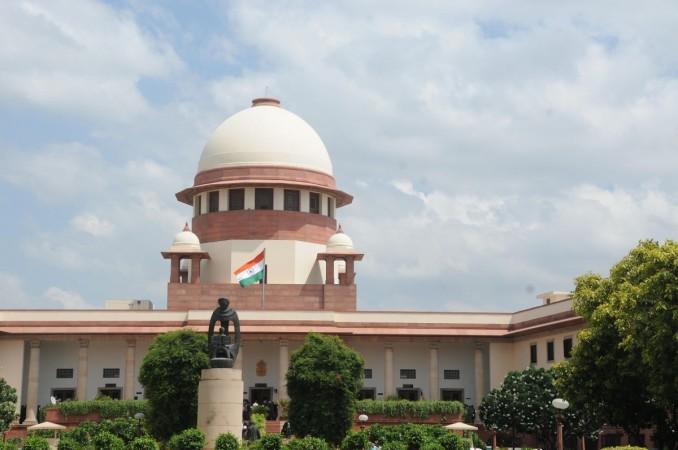
The Supreme Court on Friday stayed the Central government order that had made Aadhaar mandatory for applying for PAN cards and filing income tax (I-T) returns. It has said that the 12-digit unique identity (UID) number shall not be used for those purposes until the case before it is disposed with.
The Supreme Court ruling comes following a hearing by a bench of Justices AK Sikri and Ashok Bhushan. They heard three petitions, filed by Communist Party of India (CPI) leader Binoy Vishwam, Dalit rights activist Bezwada Wilson and retired Indian Army officer SG Vombatkere.
Salman Khurshid, counsel for one of the petitioners and also a Congress leader, said after the apex court ruling: "This is a very meaningful judgment. This is the court cooperating and collaborating with Parliament, finding the appropriate scheme of things."
In March this year, Aadhaar was also made mandatory for opening of Employee Provident Fund (EPF) accounts. The UID number has since been made a must for various other services, and there are also talks to make it mandatory for the purchase of train and flight tickets as well.
Aadhaar, it may be remembered, was originally meant to be only used to deliver social benefits, as per the provisions enshrined in the Aadhaar (Targeted Delivery of Financial Subsidies, Benefits and Services) Act of 2016.
![[Representational Image] Aadhaar Card.](https://data1.ibtimes.co.in/en/full/544734/aadhaar-card.jpg?h=450&l=50&t=40)
Introduced in the UPA regime, Aadhaar has since been given a much bigger role by the BJP-led NDA government of Prime Minister Narendra Modi. The step has not pleased many, though, with concerns on privacy being raised across political and social circles.
Former Union finance minister had earlier in the year said during a visit in Bengaluru that India was moving towards an "Orwellian state" because of Aadhaar-seeding. He explained that making Aadhaar mandatory for things like one's bank account and booking a flight ticket, along with everything else, would mean "the government knows where I am, my financial status, where I am travelling and even by medical condition [in case Aadhaar is made mandatory for medical or life insurance]."

















